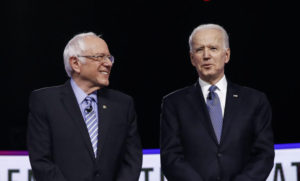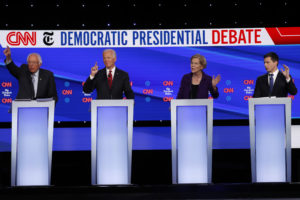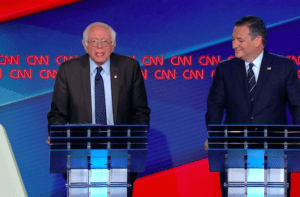The Ghost of Pardon Past
The argument among Republicans over whether President Bush should grant Scooter Libby a quick pardon amounts to a battle between the past and the future.WASHINGTON — The argument among Republicans over whether President Bush should grant Scooter Libby a quick pardon amounts to a battle between the past and the future.
The Republicans most eager to end the Libby case immediately are those who were most deeply invested in the Iraq war and were willing to do whatever was expedient to commit American troops to a venture they were certain would turn out well.
The Libby case put their generation on trial, to use Alistair Cooke’s evocative phrase about a very different trial in an earlier age. The verdict against Libby was a verdict against them.
The Republicans with the gravest doubts are those who worry about the damage a pardon would cause their party by undercutting its oft-stated commitment to the rule of law.
Attitudes toward a pardon thus do not break down neatly along ideological lines. In last Tuesday’s Republican presidential debate, for example, James Gilmore, the former Virginia governor and a down-the-line conservative, offered a flat “no” when asked if he would pardon Libby. “I’m steeped in the law. I wouldn’t do that,” he added.
Gilmore elaborated on this view in an interview with the Los Angeles Times on Thursday. “If the public believes there’s one law for a certain group of people in high places and another law for regular people, then you will destroy the law and destroy the system,” he said.
But for those who advocated hard for the war, what matters is that Libby loyally did all he could to advance the effort and push back against its critics.
It was thus not surprising that one of the most ferocious calls for an immediate pardon came from William Kristol, the editor of The Weekly Standard, who was one of the staunchest supporters of the Iraq invasion.
Responding to a White House statement that the president was, for the moment, declining to intervene in the case, Kristol declared: “For President Bush, loyalty is apparently a one-way street; decency is something he’s for as long as he doesn’t have to take any risks in its behalf; and courage — well, that’s nowhere to be seen. Many of us used to respect President Bush. Can one respect him still?”
Kristol’s sharpness underscored the tribulations that Bush will face if Libby is required to go to prison while his appeal is pending. If Bush blocks prison time for Libby, either through a pardon or by commuting his sentence, the action would amount to the repudiation of a jury verdict — and also of the decisions of federal Judge Reginald Walton, one of the president’s appointees. Commuting Libby’s sentence would not, as some have suggested, be a happy compromise because doing so would still involve setting aside a formal punishment on behalf of an administration favorite.
Yet if Bush allows Libby to go to prison, he will alienate his dwindling band of supporters, particularly those most vociferous in standing up for the administration’s Iraq policies.
The Republican presidential candidates have two time frames: their need to win conservative support in the nomination battle now, and the general election imperative to break with what is looking like a discredited presidency. Taking a stand on a pardon forces an awkward and immediate choice between those objectives.
That’s why the leading candidates ducked the pardon question at their debate, though in revealing ways. John McCain was crisp (“He’s going through an appeal process. We’ve got to see what happens here.”), while Rudy Giuliani and Mitt Romney offered rambling responses aimed at sounding pro-Libby without committing themselves.
Giuliani declared Libby’s sentence “way out of line” and insisted there was “no underlying crime involved.” But he chose the conditional when pressed: “I would see if it fit the criteria for pardon. I’d wait for the appeal.”
For his part, Romney said special prosecutor Patrick Fitzgerald “clearly abused prosecutorial discretion,” but then used all the classic dodges: “It’s worth looking at that. I will study it very closely, if I’m lucky enough to be president, and I’d keep that option open.”
Fred Thompson, whom many conservatives hope will enter the race, has been a leader of Libby’s legal defense fund. Perhaps ironically for the man who plays a prosecutor on “Law & Order,” Thompson has unequivocally endorsed a pardon.
Thompson’s clarity may pressure other Republicans to support a pardon — Giuliani seemed almost there during the debate — but their decisions would come at a high cost. At times, a single legal case can come to embody an entire controversy, even an entire era. To support pardoning Scooter Libby has come to mean endorsing an approach to politics and a way of governing that most Americans have come to reject.
E.J. Dionne’s e-mail address is postchat(at symbol)aol.com.
© 2007, Washington Post Writers Group
Your support matters…Independent journalism is under threat and overshadowed by heavily funded mainstream media.
You can help level the playing field. Become a member.
Your tax-deductible contribution keeps us digging beneath the headlines to give you thought-provoking, investigative reporting and analysis that unearths what's really happening- without compromise.
Give today to support our courageous, independent journalists.






You need to be a supporter to comment.
There are currently no responses to this article.
Be the first to respond.